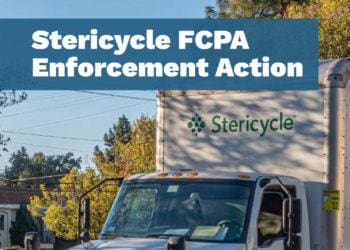with contributing authors Montse Ferrer and Nicola Dresch
Eight of the 10 companies that paid approximately $1.5 billion in 2014 to U.S. authorities to resolve Foreign Corrupt Practices Act (FCPA) offenses had an Asia-Pacific connection. Contrary to last year’s anomaly, in which the number of FCPA enforcement actions involving the region declined sharply, 2014 resumed the U.S. enforcement focus on Asia-Pacific actors, both corporate and individual. Our list includes the eight corporate prosecutions and key prosecutions of individuals held responsible for corrupt misconduct.
Enforcement Actions
1. Avon: On December 17, 2014, Avon Products (China) Co. (Avon China), a wholly-owned subsidiary of New York-based cosmetics company, Avon Products, pleaded guilty to conspiracy to violate the accounting provisions of the FCPA in order to conceal more than $8 million in gifts, cash, non-business meals, travel and entertainment given to Chinese government officials in order to obtain and retain business benefits (including approval for direct selling) in China. Avon was found to have had inadequate internal controls to prevent and detect payments made to Chinese government officials by employees and consultants at Avon China between 2004 and 2008, and its books and records also failed to accurately record the details and purpose of those payments. Avon China agreed to pay a $67.64 million criminal fine, whilst Avon entered into a three-year deferred prosecution agreement (DPA). On the same day, Avon also settled civil charges by agreeing to disgorge $52.85 million, pay prejudgment interest of $14.5 million and retain an independent monitor to review its FCPA compliance program for 18 months, followed by an 18-month period of self-reporting.
Key: Avon management learned in late 2005 of potential FCPA problems in China, but did not start a full-scale internal investigation until 2008, after its CEO received a letter from a whistleblower. According to the U.S. Department of Justice (DOJ), Avon conspired to cover up the improper payments rather than take immediate action to end them. Had Avon investigated the matter sooner, the misconduct would likely have ended much earlier and the penalty reduced accordingly.
2. Alcoa: On January 9, 2014, U.S.-based Alcoa, the world’s third-largest aluminum producer, and Alcoa World Alumina (AWA), its majority-owned and controlled sales company, paid a total of $384 million for FCPA violations. Between 1989 and 2009, AWA, together with an affiliated Australian company operating under an Alcoa joint venture (JV), reportedly channeled millions of dollars in bribes through an international “consultant” to officials of a predominantly state-owned Bahraini aluminum manufacturer. The consultant was paid a commission on sales where he acted as agent and received a markup on sales where he acted as a purported distributor. He then used those funds to pay bribes to senior Bahraini officials to influence contract negotiations. AWA pleaded guilty and agreed to pay a $209 million criminal fine and to forfeit $14 million. Alcoa, the parent company, also settled a civil administrative order by disgorging $161 million. The overall $384 million settlement is the sixth-largest FCPA enforcement action in history, while the disgorgement element is the third-largest FCPA-related corporate disgorgement.
Key: Under a separate contractual arrangement with Alcoa, the Australian company, which was not otherwise subject to the FCPA, was required to contribute 15 percent of the cost of the settlements. When entering into JVs with entities that are not subject to the FCPA, contractual protections can mitigate any loss or damage suffered as a result of transgressions by those parties.
3. Alstom: On December 22, 2014, this French-based power and transportation company pleaded guilty to bribing public officials in countries including Indonesia, Saudi Arabia, Egypt, the Bahamas and Taiwan. Alstom admitted paying in excess of $75 million to secure power projects worth over $4 billion. Alstom will pay $772 million in criminal penalties, the biggest criminal fine ever levied for FCPA offenses and the second-biggest FCPA enforcement fine of all time. In addition, one Swiss subsidiary pleaded guilty, and two U.S. subsidiaries entered into DPAs. Three Alstom executives have so far pleaded guilty for their roles: William Pomponi on July 17, 2014 and David Rothschild and Frederic Pierucci, in 2012 and 2013 respectively. A fourth executive is awaiting trial in 2015.
Key: The scale of Alstom’s penalty reflects the fact that the corrupt conduct was sustained for more than a decade, across several continents and a number of subsidiary business units. The total global penalty faced by Alstom may yet rise further as subsidiary companies operating in other jurisdictions face further proceedings from separate enforcement agencies, including by the UK Serious Fraud Office.
4. Marubeni: On March 19, 2014, the Tokyo-based trading company entered a guilty plea and paid a criminal fine of $88 million for conspiracy and substantive violations of the FCPA. Marubeni reportedly worked with Alstom to bribe a member of the Indonesian Parliament and high-ranking officials of the state-owned electricity company to win a $118 million power project. Reportedly, Marubeni and Alstom retained two consultants and disguised the illicit payments as legitimate consulting service payments. In reaching its decision, the DOJ considered Marubeni’s lack of cooperation with its investigation, its lack of an effective compliance and ethics program at the time of the offense, its failure to properly remediate and its lack of voluntary disclosure.
Key: Although Marubeni is neither an issuer nor a “domestic concern” under the FCPA, liability arose from meetings that took place in the United States with Alstom’s U.S. subsidiary, as well as payments made from a Marubeni bank account in New York to a consultant’s bank account in Maryland. This is yet one more example of how far FCPA liability can extend.
5. Bio-Rad: On November 3, 2014, California-based life science company Bio-Rad Laboratories entered into a non-prosecution agreement (NPA) to pay a total of $55 million to settle both criminal and civil FCPA charges. Bio-Rad lacked sufficient internal controls to prevent or detect approximately $7.5 million in bribes that were paid during a five-year period in Russia, Vietnam and Thailand, improperly recorded as commissions, advising fees and training fees. In Vietnam, Bio-Rad’s Singapore subsidiary allegedly sold products at a deep discount to distributors, who then resold these at full price to officials at state-owned hospitals, passing through a portion as a bribe. In Thailand, Bio-Rad acquired a 49 percent interest in a Thai company with a pre-existing bribery scheme that Bio-Rad did not detect either prior to or post-acquisition, which involved Thai agents receiving inflated commissions that were partially used for bribes to obtain business.
Key: The DOJ stated that it entered into the NPA largely because Bio-Rad voluntarily disclosed its wrongdoing and was fully cooperative with the enforcement authorities. Although some have argued that self-disclosure does not necessarily reduce penalties, DOJ made clear in this case that even systemic and widespread wrongdoing will not necessarily lead to the harshest of penalties if disclosed and addressed adequately.
6. Layne Christensen: On October 27, 2014, the Texas-based water management company agreed to pay just $5 million to resolve civil FCPA charges brought by the U.S. Securities and Exchange Commission (SEC) for bribes in six African countries to reduce taxes, speed up customs inspections and obtain work permits. The company received approximately $3.9 million in unlawful benefits from 2005 to 2010 as a result of bribes that were typically paid by its wholly-owned subsidiaries in Africa and Australia, sometimes through U.S. bank accounts.
Key: The lack of internal controls meant that the payments went undetected for five years. Once detected, the company immediately voluntarily disclosed to the SEC. The settlement agreement requires self-reporting to the SEC on the status of Layne Christensen’s compliance and control program for two years.
7. Bruker: On December 15, 2014, the SEC charged Bruker Corp., the U.S.-based global manufacturer of scientific instruments, with violating internal controls and books and records provisions by providing non-business related travel and improper payments totaling approximately $230,000 to various Chinese government officials to win sales contracts with state-owned entities in China. The improper payments involved reimbursements for leisure travel, as well as 12 suspicious collaboration agreements with state-owned entities, under which no work product was specified or ever actually provided to Bruker. Bruker agreed to pay approximately $2.4 million to settle the SEC’s charges.
Key: The SEC stated that Bruker’s lax internal controls allowed employees in China to enter into sham collaboration agreements to direct money to foreign officials and send them on sightseeing trips around the world undetected.
8. Smith & Wesson: On July 28, 2014, U.S.-based firearms manufacturer Smith & Wesson Holding Corp. was charged with violating FCPA anti-bribery, internal control and books and records provisions. The SEC found that, between 2007 and 2010, the company’s international sales staff engaged in a pervasive effort to attract new business by making illegal payments and providing gifts to government officials in Pakistan, Indonesia, Nepal and Bangladesh, often through third-party agents, in order to win supply contracts with overseas military and law enforcement agencies. Smith & Wesson settled the charges by paying a $2 million fine and agreeing to report on its compliance efforts for two years. The SEC considered the company’s cooperation, as well as its extensive remediation measures, including terminating its entire international sales staff, when assessing the penalty.
Key: The SEC highlighted this case as a wake-up call for small and medium-size businesses that want to enter high-risk markets and expand their international sales, to ensure that all of the necessary anti-corruption controls are in place and operating effectively before entering these markets.
Individuals
9. Petro Tiger: On January 6, 2014, charges were announced against two former Chief Executive Officers (Joseph Sigelman and Knut Hammarskjold) and a former General Counsel (Gregory Weisman) of BVI-based oil and gas company, PetroTiger, for their alleged participation in a scheme to pay bribes to a government official in Colombia. The bribes were reportedly paid in order to secure approval from Colombia’s state-owned and state-controlled oil company for a lucrative oil services contract. The individuals were also charged with conspiracy to commit wire fraud and launder the proceeds of crime in connection with PetroTiger’s proposed acquisition of a target company in Colombia. Weisman pleaded guilty on November 8, 2013, and Hammarskjold pleaded guilty on February 18, 2014, while charges against Sigelman remain pending.
Key: This case started with a voluntary disclosure from PetroTiger, yet PetroTiger itself has not been under investigation by the authorities.
10. Group DF: On April 2, 2014, charges against six non-U.S. nationals were announced in connection with an international conspiracy to pay at least $18.5 million (transmitted through U.S. financial institutions) in bribes to government officials in India to allow the mining of titanium minerals. One defendant, Dmitry Firtash, a Ukrainian national, was arrested on March 12, 2014 in Vienna, Austria and subsequently released on bail pending extradition proceedings. Firtash controls an international conglomerate of mining and mineral processing companies that were directly and indirectly owned by Group DF Limited, a BVI-registered company. The five other defendants remain at large.
Key: None of the individuals in this case are U.S. citizens, which demonstrates that violations committed by foreign nationals in overseas jurisdictions are not beyond the reach of the U.S. authorities. In this case, liability for these individuals arose because the improper payments were transmitted through U.S. financial institutions.
Conclusion
There are significant pending investigations, including the U.S. investigation of GlaxoSmithKline following the $490 million penalty imposed by Chinese authorities for its alleged use of 700 middlemen and travel agencies to channel kickbacks to doctors and hospitals, as well as the investigation of BHP Billiton relating to hospitality provided as part of its sponsorship of the 2008 Beijing Olympics. Accordingly, it is likely that the U.S. enforcement focus will remain on Asia-Pacific. The extensive experience that U.S. enforcement agencies have gained in Asia-Pacific has led to their understanding of cultural nuances inherent in business practices across the region. However, traditional practices should not be confused for adequate bribery justifications, but rather as necessary context to conducting business in the region.



 Wendy L. Wysong is a partner at
Wendy L. Wysong is a partner at 







